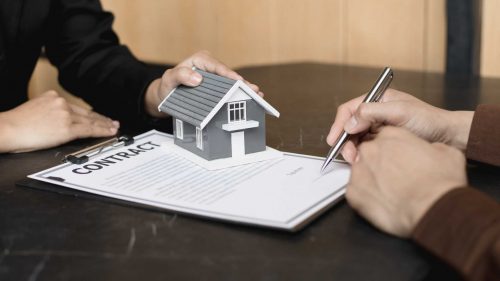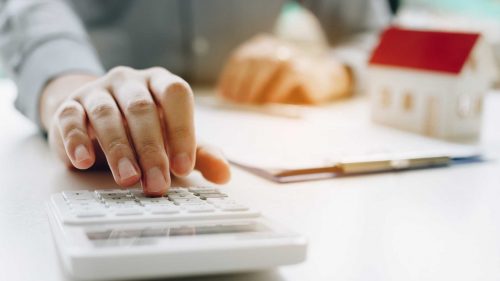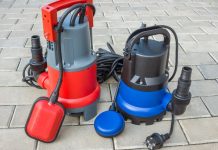Planning your finances is essential for both landlords and tenants, for it addresses necessary repairs and upkeep while managing expenses effectively.
In this article, we will provide you with tips and guidelines to create a budget that allows you to maintain your rental property without breaking the bank.
Rules of Thumb for Rental Property Maintenance
 Regular upkeep is a crucial aspect of managing a rental property. It helps preserve its value, ensures the comfort and safety of tenants, and minimises the risk of major repairs in the long run.
Regular upkeep is a crucial aspect of managing a rental property. It helps preserve its value, ensures the comfort and safety of tenants, and minimises the risk of major repairs in the long run.
When it comes to budgeting for property maintenance expenses, here are some rules of thumb to keep in mind:
Allocate a portion of your rental income for property maintenance expenses
Setting aside a percentage of your earnings specifically for maintenance costs is highly recommended.
A common guideline is to allocate 10% to 20% of the monthly rent towards these expenses. This ensures that you have funds available when property maintenance services are needed.
Aim to set aside at least 1% of the property’s value for annual maintenance costs
Another rule of thumb is to budget around 1% of the property’s value for annual property maintenance expenses. This provides a rough estimate for long-term maintenance needs and helps you plan accordingly.
Consider the age and condition of the property
Both play a significant role in determining the property’s maintenance needs and costs. Older properties may require more frequent repairs and updates, while newer ones may have lower maintenance requirements. Take these factors into account when estimating your budget.
Assess the Spending for Previous Years
Reviewing past property maintenance expenses lets you gain insights into patterns, anticipate future costs, and make informed decisions.
Take a close look at your records from previous years. Categorise these expenses based on recurring tasks, unexpected repairs, and property upgrades.
This will help you understand where your maintenance budget has been allocated in the past and identify any areas of overspending or underspending.
And then look for patterns or trends in your upkeep expenses. Are there specific tasks or repairs that occur regularly? Are certain areas of your property more prone to issues?
Identifying patterns can help you anticipate future maintenance needs and allocate your budget accordingly.
Based on the patterns you’ve identified, anticipate future maintenance costs. This will help you allocate funds for anticipated expenses and avoid unexpected repairs catching you off guard.
Evaluate the effectiveness of your previous budget allocations. Did you allocate enough funds for recurring tasks? Were you prepared for unexpected repairs?
Assessing the effectiveness of your budget will help you make adjustments and improvements moving forward. If you consistently overspend in certain areas, consider increasing the budget allocation for those tasks.
Conversely, if you consistently underspend in certain areas, you may be able to reallocate funds to more critical maintenance needs.
Lastly, based on your assessment, make the necessary adjustments to your budget. Ensure that you allocate sufficient funds for recurring maintenance tasks, anticipate potential repairs, and set aside reserves for unexpected emergencies.
A well-thought-out budget will help you better manage your maintenance expenses and maintain the condition of your rental property.
Plan Ahead
 By taking a proactive approach and creating a well-structured plan, you can effectively manage maintenance tasks and minimise unexpected expenses.
By taking a proactive approach and creating a well-structured plan, you can effectively manage maintenance tasks and minimise unexpected expenses.
Develop a calendar that outlines the regular maintenance tasks required for your rental property. This includes tasks such as HVAC system servicing, gutter cleaning, pest control, and landscaping. Assign specific dates or time intervals for each task to ensure they are performed in a timely manner. Additionally, estimate the costs associated with each task to help you budget accordingly.
You can also prioritise essential maintenance needs, as some maintenance tasks are more critical than others. Things like addressing structural issues, electrical or plumbing problems, or safety concerns can be prioritised so you allocate sufficient resources to fix them when needed.
Doing this can prevent further damage and costly repairs down the line.
It’s also important to thoroughly research potential maintenance issues that may arise based on your property’s age, location, and specific features.
For example, if you have an older property, you may need to anticipate problems related to ageing infrastructure or outdated systems.
Understanding these things allows you to proactively address them and allocate the necessary resources to your maintenance budget.
Last but not least, you may even want to consider landlord insurance to have peace of mind should anything unforeseen happen.
Think About Your Seasonal Property Maintenance Needs
 Seasonal tasks, such as landscaping, gutter cleaning, and HVAC system maintenance, play a crucial role in keeping your property in good condition.
Seasonal tasks, such as landscaping, gutter cleaning, and HVAC system maintenance, play a crucial role in keeping your property in good condition.
Here’s what you need to focus on:
- Make a list of the specific maintenance tasks that need to be performed each season. This may include activities like cleaning gutters in the fall, preparing the landscaping in the spring, or servicing the HVAC system before summer and winter. By identifying these tasks, you can plan and allocate funds accordingly.
- Consider your area’s climate and weather conditions when planning seasonal maintenance. Different regions experience different weather patterns and temperature extremes, which can impact the maintenance needs of your property. For example, properties in colder climates may require additional winterisation measures, while properties in warmer climates may have more extensive landscaping needs. Adapt your maintenance plan to address the specific challenges posed by your area’s climate.
- Look for cost-effective ways to handle seasonal maintenance without compromising quality. Research local vendors, contractors, or service providers who offer competitive prices for seasonal maintenance tasks. Consider bundling services or negotiating discounts for regular maintenance contracts. Additionally, explore DIY options for tasks you can safely and effectively handle, such as basic landscaping or cleaning.
Consider Any Hidden Property Maintenance Costs
 You should plan to include sufficient funds in your budget to be able to deal with the following things:
You should plan to include sufficient funds in your budget to be able to deal with the following things:
- Pest infestations can be a common issue in rental properties, and addressing them promptly is essential. Allocate funds for regular pest control inspections, deep cleaning, and treatments to prevent potential damage and ensure a comfortable living environment for your tenants.
- Water damage can cause significant problems and expenses if not addressed proactively. Consider investments in measures such as waterproofing, gutter maintenance, and plumbing inspections to prevent water-related issues and potential mould growth.
- Upgrading your rental property to be more energy-efficient can have long-term cost savings and environmental benefits. Research energy-saving measures such as installing energy-efficient appliances, improving insulation, or upgrading to LED lighting. While there may be an upfront investment, the reduced utility bills can help offset the initial costs in the long run.
Identify Maintenance Tasks You Can Handle Yourself
 Knowing what you can handle yourself can significantly reduce your expenses and allow you to maintain the quality of your property.
Knowing what you can handle yourself can significantly reduce your expenses and allow you to maintain the quality of your property.
You can regularly clean and maintain common areas, such as hallways, staircases, and shared spaces. Dusting, vacuuming, mopping, and regular cleaning are all included. If doing it yourself is not your style, you can always use tenancy cleaning services.
If your rental property needs a fresh coat of paint, consider taking on the task yourself. This is a relatively simple and cost-effective way to improve the appearance. Just ensure that you have the necessary tools and follow proper painting techniques.
Simple repairs, like fixing leaky faucets, replacing light bulbs, repairing or replacing door handles, and adjusting cabinet hinges, can often be done without professional assistance. Many hardware stores offer DIY resources and tutorials to guide you through these tasks.
Maintaining the outdoor areas of your property, such as mowing the lawn, trimming bushes, and planting flowers, can be enjoyable and cost-effective when done by yourself. Research basic gardening techniques and invest in the necessary tools to keep your property’s curb appeal intact.
Regularly changing filters in HVAC systems, air purifiers, and water filters is essential for maintaining their efficiency.
Additionally, don’t forget to replace batteries in smoke detectors, carbon monoxide detectors, and thermostats on a scheduled basis.
Choose Property Maintenance Services
Choosing property maintenance services can be a smart decision to ensure the proper upkeep of your rental property.
Here are some tips to help you make the right choice:
Evaluate Benefits
 Consider the advantages of using professional property maintenance services. They can provide expertise, save you time and effort, and ensure high-quality workmanship. They may also have access to specialised equipment and resources, ensuring better results in less time.
Consider the advantages of using professional property maintenance services. They can provide expertise, save you time and effort, and ensure high-quality workmanship. They may also have access to specialised equipment and resources, ensuring better results in less time.
Research Service Providers
Take the time to research and identify reputable property maintenance companies in your area. Read customer reviews and testimonials to gauge their reliability and performance. Look for service providers that have experience in the rental property sector.
Compare Pricing and Services
 Request detailed information on pricing and services offered by different providers. Compare their offers to ensure they align with your specific maintenance needs and budget. Don’t solely focus on pricing; consider the value provided and the reputation of the company.
Request detailed information on pricing and services offered by different providers. Compare their offers to ensure they align with your specific maintenance needs and budget. Don’t solely focus on pricing; consider the value provided and the reputation of the company.
Obtain Multiple Quotes
Request quotes from several property maintenance service providers. This allows you to compare pricing, services, and terms. Ensure that the quotes include a breakdown of costs and any additional fees or charges.
Specialised Skills and Equipment
Identify tasks that require professional personnel and equipment, such as electrical work, plumbing repairs, or HVAC service maintenance. For such tasks, it’s best to choose pros who have the necessary expertise and tools.
Check Insurance and Licenses
 Verify that the property maintenance service providers you consider have appropriate insurance coverage and necessary licences. This protects you in case of any accidents or damages during the maintenance process.
Verify that the property maintenance service providers you consider have appropriate insurance coverage and necessary licences. This protects you in case of any accidents or damages during the maintenance process.
Conclusion
Creating a budget for rental property maintenance is crucial for ensuring the upkeep of your investment without straining your finances.
By following the advice above, you can develop a comprehensive personal budget that meets your maintenance requirements while being cost-effective.
Remember, investing in regular maintenance not only preserves the value of your property but also enhances tenant satisfaction and minimises unexpected repair expenses.



































